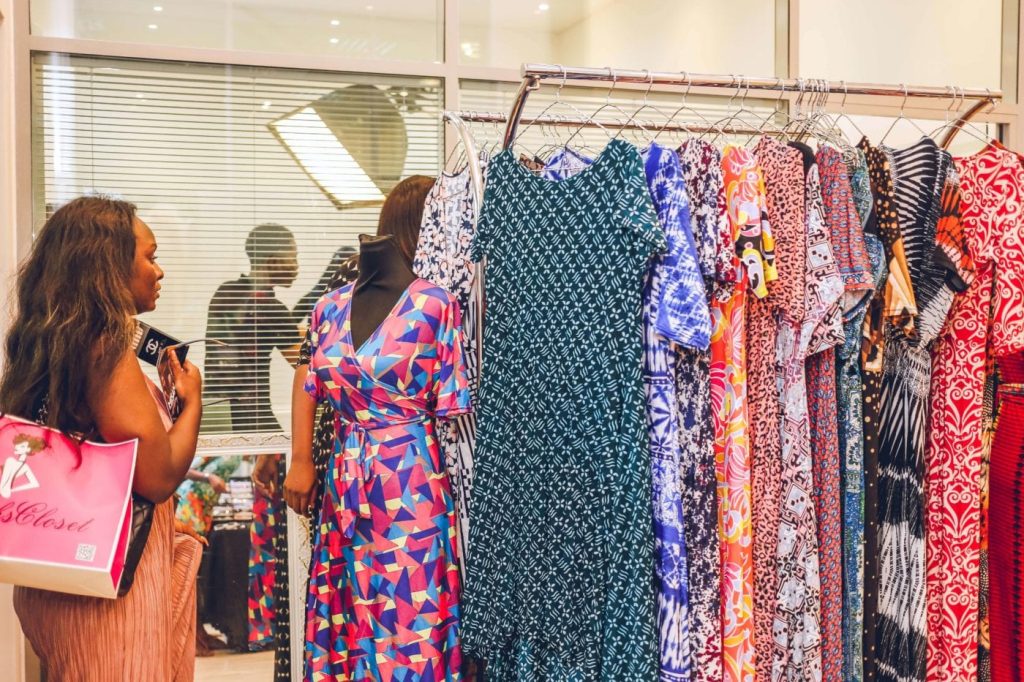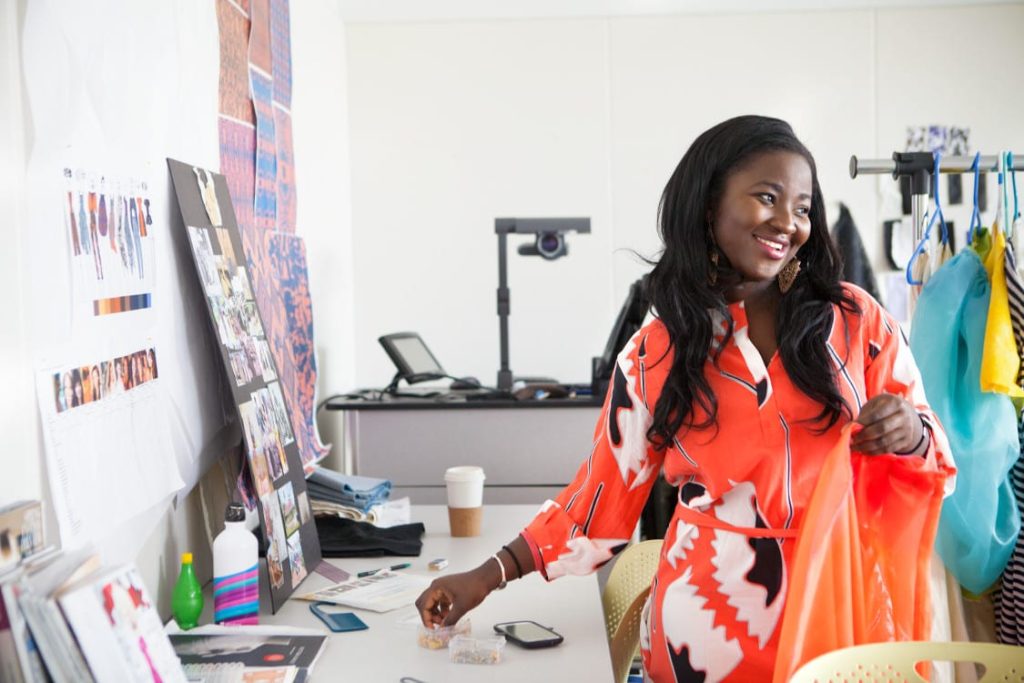Master the art of the side hustle in school

[bctt tweet=”If you are an active person in school you probably have 2-3 things going on at the same time” via=”no”] In university, it becomes important to effectively balance the primary purpose of being on campus (school) with every (and I mean every) other activity you have going on. From my first year in school, I was always involved in multiple activities. I worked at the school’s radio as an OAP, I worked as an event host within and outside the school and the state. I worked with several magazines, writing for them, raising funds, planning events etc. I had obligations in church…phew! In my final year, there was the main school project, several committees, freelance writing jobs, a sewing and a buying and selling business, a costume creative group, and of course church. For a student, this is equivalent to having side jobs and a main job. In this case, the main job is school and that is your starting point. How do you juggle all of this? 1. Your primary focus will determine the spare time you have Like it or not, love the school (course) or not, you are bound by your academic schedule. That is your 9-5. (Or 6.30-5 in some cases ). When you have your school schedule (timetable ) down to a pat, then you can begin to fix other pieces in place. 2. Work smart,not hard. Cliché but true. And no, I am not advocating for class skipping. It will go a long way to help balance your multitasking if you quickly figure out which classes are necessary, important, compulsory and useful. I have seen students wait around for the next class, staying on in spite of there being no classes. They just hang around. Except when you are networking or gathering information, you don’t have that luxury. 3. Every second of the day counts. Tick tock. You work with time. 30 minutes is ample time to fix one or two things within a given period. You might end up wasting time if you have no idea how to effectively use the free moments you have. 4. Know those who can help you ease your burden. In this case, the “who” will be your class representative. A cordial relationship with your class representative puts you in a position of information. A typical day for me starts the night before. I call my class representative to ask for shifting class schedules, classes most likely not to hold, vital information and anything that will save me from making an unnecessary trip inside school. A good school squad (if your squad is not in your class), is needed to cover up lapses in the case you get stuck conducting other business. They are your support team. 5. Follow a daily plan My planning culture from school has helped me till this moment. I make a weekly plan, a very big one. It is colour coded to accommodate classes, meetings, jobs, church obligations, business and whatever I might have going on, including fun time (totally needed). Then I break them into smaller blocks by the days. I then proceed to pen into my mini planner (small enough to fit into an average clutch purse) the activities that are high on the priority list outside school, because that is a constant. The list in my mini planner are the things I must complete. These are the jobs, clothes to sew, meetings, assignments, etc. You consult this planner like an Oracle on an hourly basis. Ticking off one completed task after the other can be fulfilling. Finally getting yourself into a good head space each morning will go a long way to prepare you for your almost topsy-turvy day. Personally, for me to start a productive day, I need the following; prayer, exercise, a glass of water and a good breakfast. NB: Priscilla’s all important bag contents for a work day 1. A tote bag (to carry everything!) 2. Bottled water 3. A fruit/chocolate bar 4. Bubblegum 5.Sunglasses 6. Slippers (for when I wear heels or loafers) 7. My planner 8. Any work related items 9. Earphones 10. Hand lotion 11. Lip gloss 12. Wipes and mini tissues 13. Pens 14. A cabman. He won’t fit into a bag but is necessary for mobility.
KudaRachel: The accidental entrepreneur proving age is no excuse to not venture into business

[bctt tweet=”I used to be so focused on my competitors until I realised that everyone is different” username=”SheLeadsAfrica”] For Kuda, the 18-year-old founder of KudaRachel, failing to find a reasonably priced corsage for her high school prom proved to be a blessing in disguise; it birthed the idea of creating her own. The then 17-year-old learned through trial and error before finally perfecting the hand-made corsages and boutonnieres. After seeing her daughter’s creative invention, Kuda’s mother suggested that she sell them, which Kuda did. “I posted photos on facebook and 12 people bought from me! The fact that people wore the work of my hands on such a huge night of their life filled me with immense pride and happiness.” Realising that corsages were only a seasonal thing, Kuda embarked on another great idea, extending to African print accessories. “African prints were the perfect choice because they can be worn in any season. The idea to venture into African accessories came at a perfect time my mother was preparing to go to Zimbabwe for the first time in 6 years. I happened to have $50AUD in my bank account which I gave to her to buy me African print fabrics. ’’ Product differentiation is an essential element in business and KR fashion’s specialty factor is that each product is customer oriented not just mass produced. As Kuda says, time and effort are spent on each KR piece and they pay attention to detail. “I used to be so focused on my competitors until I realised that everyone is different and that no idea under the sun is new. Everything is just a different version of the original! We may make the same things but we each have our own visions therefore, we’ll each have our own target markets. I really do believe in the saying, ‘There is space for everyone at the top.’” Kuda also shares that she connects with other people in the same line of business as her to share ideas. She even sometimes provides fabrics from her suppliers to them. Obtaining fabrics is a major challenge in the business as she claims that the fabrics in Australia a super expensive hence outsourcing them is the better alternative even though large shipping costs are incurred in the process. Giving back where it counts KudaRachel is not just concerned with making profits but fuses social entrepreneurship as well. The social enterprise is visionary and has three main aims which it is committed to. “KR aims to make a difference in people’s lives through fashion. I want fashion to be able to pay for someone’s education or put food on the table for someone in need! KR supports a charity each year.” Since its Since its inception, KR has been supporting Act for Peace by donating 50% of profits from its KR merchandise collection. Kuda further adds on, “In 2016, I represented KudaRachel and did a ration challenge where I got sponsored to eat the same rations of food that a Syrian refugee would eat for a whole week. So far we have raised AUD$439 worth of donations and sales from the KR Merchandise.” Concerned with youth development among its social aims, KR provides opportunities to upcoming talent. Having realised one the main difficulties young people face when looking for jobs is concerned with experience, KR gives them a chance to build their portfolio since most big corporations turn them out. Currently, the business team is made up of 2 main photographers; Feranmi Taiwo and Kelsey Grant, 2 seamstresses, and the models and make-up artists who rotate according to the type of shoot they are holding. The KR website is also a wall of positivity filled with quotes and the blog journey of the KRfam. This is just one of the many platforms KR uses to interact with its clients. The evolution of marketing hasn’t been the same with the arrival of social media marketing. Kuda certainly lets in that it has had tremendous benefits on growing the business. “Social media plays a big role in bringing clients, we use Snapchat, Facebook, and Instagram a lot (just type Kudarachel in all of them). Through them, we have managed to attract customers from countries such as USA and UK. Hustling while being a full-time student As a full-time nursing student, it is a wonder how Kuda manages to keep her business afloat, especially when the two industries; fashion business and nursing are so unrelated. She credits the success of the business to a lot of time invested in financial education. She has taken it upon herself to learn as much as she can about the business aspect. “I read a lot of books and blog posts by people I look up to; Daymond John – “The Power of Broke”, Janine Allis – “The Juicy Bit”, Sophia Amoruso – “Girl Boss” and of course SheleadsAfrica blog..DUH ahahA. Everything I have learnt so far is through the internet, books, other people and trial and error. I’m excited to keep on learning. It also helps that I have a mentor Alyce Schlothauer who is helping me with my overall branding strategy while Shingai Manjengwa advises me on how to run my business.” Kuda certainly credits the success of the venture to the entire KRFAM’s support which is made up of her customers, her mother, friends, and family. She had to sacrifice a lot of her time in order for KR to succeed, cut back on going out and invest instead on special events such as friends’ birthdays. [bctt tweet=”Everything I have learnt so far is through the internet, books, other people and trial and error” username=”SheLeadsAfrica”] Embark on business for the right reasons Her last tips for budding entrepreneurs, “It’s really hard work to be honest. Being your own boss means that when you are starting out, normally your funds are limited hence if you don’t do it yourself, no one else will. You will have to wear the hats of a cleaner,
Degree in view: Five things you must start now

[bctt tweet=”Don’t pause your life in university, you can’t expect to play it back after your degree” username=”SheLeadsAfrica”] Shout out to those of us that are yet to officially stop getting monthly allowances and still basking in the euphoria of the school life freedom. Undergraduate life can be amazing, and besides attending lectures (and partying non-stop), there’s a lot more you can do while still in the ivory tower which would be healthy for you and your future, sista. So before, you join the 9-5ers or labour market or whatever it’s called, here are five things to start now to save you some stress in the future Be independent and explore your options. (Yass girl, start learning to do things on your own). Take responsibility for yourself and your actions now and start gathering up skills and those sorta things you would require to be your own #MotherlandMogul. Start making great and valuable decisions that would do you good years from now. Regardless of the course you might be studying (whatsoever course) try your hands on a couple of other extracurricular activities and studies. You could learn a second language or some photography, or even try participating in an art exhibition. A professional job and a side hustle never hurt anybody, plus you never know where your big break would spring from in the long run. [bctt tweet=”Talk to your career counsellor, get a career mentor…and other things to start while in uni” username=”SheLeadsAfrica”] Get all the advice you can and enjoy the process Talk to your course adviser or career counsellor (inasmuch as it might be boring). Get yourself a mentor, gain as much mentorship knowledge as you can about your career path. The internet is also a great stop for amazing career advice. Read with a lil’ dash of fun Immerse yourself in schoolwork, attend classes, never miss an assignment, read, read, and read, anything to come out with a turn-up degree, and do this while having a good time (cause we girls, are smart like that). You could try organizing a creative and fun study group with a few smart friends, that way, studying wouldn’t be so boring. Have safe fun as much as you can, but whatever you do, don’t stay partying on the eve of your exams, you are on your own. Spice up your profile Create a professional online presence for yourself towards whatever path you are looking to take in the future. Know what you really want to do; the kind of job that excites you and start building yourself and your resume in that direction (you do not want to come out of school with only your name and personal profile barely half page on what should be called your resume, nah). [bctt tweet=”You can start building yourself and your career strategy while in university” username=”SheLeadsAfrica”] Research on specific companies you’d love to work with in the future and apply to intern with them, chances are that they might want to retain you after you get a degree, or not (anyways, you still lose nothing). Jumpstart your career School is the best place to start your career and your friends and classmates are the best customers you could have. However you start up, chances are that you will likely get loyal classmates and friends that’ll want to help your hustle. Don’t dull, take advantage of the university environment before you are shown the door out. Start gathering your Oprah money: I know everybody talks about money, and honestly, we all need money to survive. So whether you’ll be gathering up from the tons of free money that comes your way while in school or from all the monies you’ll come to earn from doing jobs or having a business, start investing your money and saving enough cash for you and your great future of responsibilities. Start making every second count now. Don’t pause your life, expecting to play it back after you’ve gotten a degree- nah, because when the degree comes, you’ll be in for some shocker reality check. Don’t take it personal though, everybody faces the check.
Michelle Orlendo: Helping women appreciate African-textured hair with the Nywele Chronicles

[bctt tweet=”There is no harm in trying. Do not be afraid of failure, keep trying – Michelle Orlendo” username=”SheLeadsAfrica”] Natural hair, especially 4c textured hair, styled in a simple yet luxuriant look has been frowned upon by many. We often hear people classifying it as an unkempt and unruly look. However, Michelle Orlendo, is changing that perception daily one head at a time. Michelle is seeing to it that as many women in Kenya transition and embrace the beautiful and natural look as possible. Tired of chemically and heat treating her hair, which had lost volume, and inspired by the fact that African women were rocking their natural hair and slaying, the 23-year-old Michelle woman embarked on a journey of being a naturalista. The big chop Michelle Orlendo went for the big chop in July 2015, to the chagrin of many. She had shoulder-length, flowing heat-treated hair, an ideal look for many. As she began her journey slightly over a year ago (on 25th November, 2015), Michelle vowed to involve other women. She especially targeted young girls who would aspire to go natural but lacked the motivation and/or guidance. The journey ahead was full of trials, criticism, moments of almost giving up and a lot of doubts. However, it began with the opening of a Facebook page dubbed “Nywele Chronicles”, (Nywele is hair in Swahili). Michelle invited her friends to like the page initially. Only a few liked it, but the fan base gradually picked up through her consistency in giving what the audience wants. The Nywele effect A few months after her big chop, Michelle’s hair grew tremendously and ladies started asking questions. Michelle describes her hair as a reflection of her soul, and her hair was glossy and really kinky —in every sense of African amazing kinky. Questions came pouring in, people wanted to know what Michelle applies, how she styles it and protective styles they could use. With every question came the realisation that she could start a blog. Michelle thought to move away from only posting pictures on her social media platforms, but also write reviews of the products she used and how she styled her hair. From it’s inception, Nywele Chronicles gained a huge amount of followers who genuinely wanted a smooth transition from chemically treated hair to natural hair. Michelle became a hair consultant of some sort. Ladies would approach her to feel her hair and request her to cater to theirs the same way. Her glorious mane turned heads in school, Moi University, as people started calling her by her page’s name, Nywele Chronicles. “It has not been an easy journey to keep my focus on updating my social media pages, getting the time to do tutorials amongst other things.” Michelle says. “I’d have given up were it not for my passion and the strong support system I have.” This is how Michelle Orlendo persevered through the challenges to get to the one year mark. Aiming to encourage women to love their natural hair Michelle hopes to have her own products that cater to African-textured hair in the market, in a span of less than 5 years. With a salon to her name and a degree in Trichology —a branch of dermatology that deals with the scientific study of the health of hair and scalp— a consultancy will come in handy. With her experience, Michelle always looks at people’s hair and analyses it even before touching. She can easily tell hair that lacks moisture, too much heat treatment and malnourished hair. [bctt tweet=”Michelle Orlendo stays motivated by the fact that Nywele Chronicles will soon be a business” username=”SheLeadsAfrica”] Now in her final year studying Actuarial Science, Michelle Orlendo stays motivated by the fact that she will soon be turning Nywele Chronicles into a business. Aiming to encourage women to love their natural hair is her tag line. This is being actualised as Michelle is helping transitioning women to wear their natural look, and feel glamorous while at it, through Nywele Chronicles. She further adds that the initiative has really helped build her confidence and esteem. Going natural has made Michelle appreciate herself holistically and opened a new window through which she views herself. To everyone that wants to venture in the formally perceived ‘not-so ideal’ courses and activities Michelle Orlendo says; “If you feel like the timing is right to do anything that you want to do, go ahead and do it. Forget what people will say and do it. There is no harm in trying. Do not be afraid of failure, keep trying.” Want to see women you know featured on SLA? Tell us what amazing things women are doing in your communities here.
Amal Oumimoune: Stand out from the crowd by doing what you admire

[bctt tweet=”It’s always beneficial to stand out from the crowd by doing what you admire – Amal Oumimoune” username=”SheLeadsAfrica”] Amal Oumimoune is another Moroccan student running things. She’s in her fourth year studying business at ENCGA (Ecole National de Commerce et Gestion d’Agadir) —that’s National School of Trade and Commerce in English. As a #MotherlandMogul in the making, Amal has started making moves while in school. With friends, she started an English club at ENCGA that helps other students practice English while developing leadership skills. Through this club, Amal has boosted her organisational skills and has come in contact with important personalities from all over the world. Amal also started a Korean-Moroccan Association with fellow students which is bringing the Hallyu (Korean pop culture) wave to Morocco. On top of that, she’s a polyglot who speaks/understands 5 languages! Basically, if you’re a student, you should be like Amal Oumimoune. Tell us about ENCGA’s English club, what are your plans to grow it in the next five years? The ENCGA’s English club was created in 2014 by a group of English enthusiasts; it’s a space that gathers ENCGA students in order to practice their English and develop their debating and leadership skills through holding weekly talk sessions and also hosting international speakers to share their experiences. Last year, we had the pleasure to host authors from the US and Singapore, and some exchange students from Guatemala and Brazil. Also, we had the chance to indulge in the company of two Fulbright exchange teachers. I am so thrilled to be this year’s team leader! There are many plans I would like the club will accomplish. For example, the first “little free library: take a book and leave a book” in our university to encourage students to read more. Also, organizing leadership and writing workshops, as well as continuing hosting inspiring personalities. The English club is from students to all the students so we work as a team and we welcome everyone’s suggestions and ideas. Based on your experience at ENCGA, what tips do you have on hosting international personalities for local events? When it comes to hosting international personalities having a wide network always works. Also, keeping an eye on every opportunity is quite important. If there’s someone in town, why not contact them and explain the whole concept of your organization? Most people nowadays are open to sharing their ideas and experiences while discovering another culture and meeting people from different backgrounds. What matters the most is to stay updated and have the needed information about the person you’d like to host. [bctt tweet=”Amal Oumimoune shares her tips on working with embassies from her experience” username=”SheLeadsAfrica”] Why start a Korean-Moroccan Association? Is there a particular reason young people should want to learn Korean? Korean culture is well promoted nowadays and many youth in my community wanted a space to share their passion for the land of morning calm. Since there are many people interested in this culture, we resolved into founding Hanmate the Korean-Moroccan Association in order to encourage cultural understanding through both education and entertainment. Although there’s a lot of difference and distance between the two countries, we strive to bring their cultures closer. The Korean language is not widely spoken in Morocco; it’s always beneficial to stand out from the crowd by doing what you admire. However, many young people desire to learn this language due to the Hallyu (Korean wave). This refers to the popularity of Korean entertainment such as TV dramas and pop music. The Hallyu wave gives consumers a glimpse of South Korea and makes them want to learn about every aspect there is, including the language. As you’ve partnered with the South Korean embassy in Morocco, what advice do you have for other young people looking to collaborate with embassies and international organizations? In order to collaborate with embassies and international organizations, it is really important to build a notoriety and visibility for your organization. This starts from adopting an effective communication plan, to share all the amazing work your organization is doing. It is always helpful to differentiate yourself from others by taking measurable risks and thinking outside the box. What matters the most is to work earnestly and being creative. In this regard, we organized the first event of its kind in all Morocco, “Taste of Korea: the Korean cuisine contest”. This contest was the beginning of our partnership with the Korean embassy. Besides, we had the opportunity to have a native speaker as a Korean teacher. That sort of worked as a tie between us and helped circulate information better. Overall, we are lucky since the Korean embassy is quite helpful and encouraging. Tell us about the current project you’re working on. What kind of educational program(s) are you in the process of designing to encourage girls’ education? The project that I’m currently working on is an educational program that will provide young girls with a place to express themselves and develop their potentials. Zahra Program will focus on four components; language, creativity, leadership and orientation. Learning English can be very empowering, and allowing young girls to express their talents and emotions through artwork is very healing. Zahra Program’s mission is to empower and enable young girls to develop their skills and self-esteem and encouraging them to give back to their community by educating them in different aspects. I’m really passionate about this project. As a young girl, I struggled with a lack of confidence and self-doubt. I was given the chance to be a part of Access program and that helped in shaping the person I am today. I really want to provide as many girls as I can reach the same opportunity I’ve been given. [bctt tweet=”Amal Oumimoune: I really want to provide as many girls as I can the same opportunity I’ve been given” username=”SheLeadsAfrica”] I’m assuming you’re multi-lingual, what’s your secret to learning/speaking many languages? Indeed. I’m fluent in Arabic, French and English and I’m yet a
Leslie Ossete: Improving lives through better transportation

If your mission is improving the lives of millions, you’ll find some similarity with Leslie Ossete. She is one of four co-founders of Magic Bus Ticketing, an offline SMS based ticketing system. Magic Bus Ticketing aims to improved lives by simplifying how they interact with transportation. It’s a student start-up that lets bus commuters know when the next bus arrives and how much it is charging. It also allows payment through mobile money. Recently, Magic Bus Ticketing won $1 million dollars from the Hult Prize. Pretty amazing, right? Let’s start with the Hult Prize. Congrats on winning the $1 million! How do you plan to use the money from the prize? Thank you! After a year long process, Magic Bus Ticketing has finally won the Hult Prize, which awards $1M in seed funding to the winning start-up. My team was among the 5 finalists out of 25,000 applicants worldwide to compete in what is now the largest student competition for social good. This September 20th at the Clinton Global Initiative in New York, we pitched our innovation in front of notable judges such as Bob Collymore, CEO of Safaricom, and Akinwunmi Adesina, President of the African Development Bank Group. And, we won! The $1M prize is distributed to Magic Bus Ticketing through monthly instalments. Depending on how much is required to effectively run the business, the Hult foundation makes funds available to Magic Bus Ticketing. Magic Bus Ticketing will use the million to fully launch its operations in Kenya, and scale fast to other East African countries with similar market conditions, Tanzania and Uganda by the end of this year. You are from Congo Brazzaville and Madagascar, why set a company in Kenya? I grew up in Brazzaville, and my team-mate Wyclife is from Nairobi. Both of us as Africans had experienced similar challenges in public transportation; long wait times at the bus stop and inconsistent pricing when it comes to bus fares. We decided to focus our pilot in Kenya because first, Nairobi is one growing tech hub on the continent. Second, Nairobi has the fourth highest commuter pain point according to IBM. And third, there had already been a lot of research and initiatives done towards using technology to improve public bus transport. In fact, Nairobi is a place of innovations. Several projects to introduce cashless payments in the bus system had been led, such as Google’s BebaPay bus card. What sparked the idea to integrate urban commuting with mobile payment? The public bus system in Africa is mostly privatized and informal. The day-to-day operations are run by a crew of drivers and conductors who earn little money from their hard work. That pushes them to overcharge commuters for their own benefit. They abuse the current cash system to set higher fares based on demand and supply. For instance, in Nairobi when it rains, the bus fare triples. Commuters themselves don’t like to carry cash around. They worry about pickpockets, and not being able to get their change back in the bus. Furthermore, the police also abuses the cash system. Police officers know the bus crews carry cash 24h/24h, and do not hesitate to fine them for absurd reasons. We envision that cashless payment in the bus industry will bring more safety and order. We believe the way to implement a cashless bus system is through the use of mobile money, which is already widely used in East Africa. It is quick, accessible, and locally relevant. Prior initiatives have been using bus cards linked to banks, but most people don’t have bank accounts, banks have high transaction fees, and buses need liquid cash on a daily basis. What steps did you take to grow your company by 5000 booked tickets in less than two months? In order to acquire a customer, you must spend on marketing. We did a lot of mass-marketing through social media platforms such as Facebook, Twitter, and Whatsapp groups. We also do outreach marketing, implementing stalls at university campuses. Furthermore, we do collaborative marketing with the bus operators themselves, handling flyers to commuters, in order to build trust with potential customers. Last but not least, we also do product demos of our technology at major bus stops. As we launch in Nairobi, we will expand to advertising through radio, TV, and billboards. What does a student start-up need to thrive and be successful? A student start-up needs to be backed by a board of advisers, with a diverse background and expertise. Magic Bus Ticketing consistently asks for feedback from renowned experts in the fields of transport, technology, finance, and organizational management. Our advisers come from valued institutions such as the World Bank and MIT university. Briefly, a student start-up needs to create for itself a network of mentors who understand the goals and challenges of the organization —no, they don’t have to come from particular institutions, but they have to be right for your organization. For example, for Magic Bus Ticketing, one of our key advisor is Bernard, who has been a bus driver in Nairobi for the past 10 years. That’s real knowledge! Perseverance is key, even more for student start-ups, to succeed. I remember our humble beginnings on our campus at Earlham College. Our initial plan was to add more buses on the roads, and to provide commuters with a subscription model to access buses on-demand. Our buses were supposed to have TV screens, Wi-Fi, bike racks, online libraries, and much more. We presented this idea at the local Hult Prize at Earlham, and were not selected to attend the regionals. It was extremely upsetting because we all knew we were tackling a real challenge in public transportation. We had to iterate our business model, and re-apply online to ensure our spot at the Hult Prize Boston regionals, which we won. Without perseverance, we would not have come this far! What do you think of the industry you work in? How do you plan to remain consistent? Magic Bus operates in
7 fashionable pieces to shop for in varsity for the office life

[bctt tweet=”Start shopping for the office life while in university with these tips” username=”SheLeadsAfrica”] Most people who make the transition from being a student to a working individual know the truth. Contrary to the popular notion that it gets better once you can tweet “pay day”, the financial side of your life won’t get any easier for a while… Those first few months will have you catching a case while you wait for the bank’s notification. With justifiable reason, companies that hire and place interns/trainees to low-earning entry-level posts expect them to dress in a way that’s not just fashionable but professional. School-leavers then face a huge challenge. How can you quickly adapt to the professional standards at the office while stuck with a very small rigid budget? After struggling to put together a ‘formal’ outfit for my very first presentation during my first year of varsity, I made up my mind to start shopping smart. I have become one of those people who spend hours in one shop, mixing and matching outfits, trying on tens of clothing items. Since then, I have learnt something new about shopping. It is fun and fabulous, but it is also a whole process on it’s own. Unless your budget stacks plenty of digits, you need to take your time and be strategic about it. Following some research in my own closet and on trending fashion blogs, I have 7 dress ideas for just-graduated women. 1. Wide leg pants Better known to me as palazzo pants. When I first spotted these in the market years ago, I didn’t think I could ever wear them. But when they came back in a whole variety of heavier fabric and colours, I couldn’t help myself. They had suddenly become more fashionable. I loved and got this simple but gorgeous high waist black pair early this year and I have been Olivia Pope’ing successfully since. For the office, you can go for a normal button-up shirt and throw on a blazer, complete the look with a simple neck-piece and graceful heels. Once you leave the office, you can ditch the shirt for a fun top and finish off the look with a pair of sandals or pumps. MotherlandMogul Tip: This is the best time to play around with different fabrics, try to keep your selection light because heavy fabrics tend to formalise most outfits. The benefit of owning a black pair of wide leg pants is that it makes it easier to play around with the colours of the top and shoes. Popular colour alternatives that are just as easy to transform between the two styles include beige, khaki, brown and rose gold. If wide leg pants aren’t your style, you can opt for the newly popular paper bag waist pants or classic straight leg formal pants. 2. Black pump I know a whole lot of girls that can testify that the black pump saved their lives, I know I can. Whether it is for the walk to the office or for school, this fashionable item can do it all. Not only are they durable if you take good care of them, but they are affordable and can be found almost everywhere. Remember to give them a good wipe down every now and then. Also, keep them in a cool place, dirty or smelly pumps don’t do much for anyone. [bctt tweet=”7 dress ideas for just-graduated women navigating office dress codes ” username=”SheLeadsAfrica”] 3. Plain t-shirt That is actually a men’s shirt (yes, that can be fashionable for ladies too). I had bought it as a gift for a friend, but I found myself falling for it so I got him something else instead. I would suggest you settle for colours like white, grey and black or any light shade. If you can make any other bold colour work then by all means, go for it. You can finish off the shirt for both styles with dark accessories (depending on the shade of your shirt). For the office, it helps to cut the shirt off way up top, a high-waist skirt should do the trick. For a more laid back look, pair the boyfriend jeans with walker boots or pumps instead of heels and if it tickles your fancy, throw a kimono over the shirt. This look is especially convenient for when you have a casual occasion to attend after a short day at the office because you can quickly change out of the skirt into the jeans. 4. Court heels Where do I start? I absolutely love courts! Whether they are floral, lace-ups or just plain, these babies are beautiful and fashionable. Once you find your ideal pair, you’ll find that they go well with almost every outfit you can scramble together. When shopping for court heels, like with every other shoe, it is very important to shop your correct size! If you buy a size that’s too small for you, you might not have any toes after walking in them! The truth is, that pointed little front can be quite cruel to your feet, if you give your toes little to no room for movement. [bctt tweet=”Did you know a delicate chiffon shirt is one of the easiest pieces to style?” username=”SheLeadsAfrica”] 5. Chiffon shirt Whether it is long sleeved or short, a delicate chiffon shirt is one of the easiest pieces to style. It is a very light piece of clothing so ideally, make sure you wear heavier bottoms with it. These type of shirts usually have some kind of detail along the neckline or collars so you need not worry much about accessorizing. Any plain pencil skirt works with this shirt. To bring the fashionable look together, add in a bold pair of platforms or boots. Platform and boot heels are usually heavier than any other heels for obvious reasons and like I said, the heavier your bottom, the better. For a casual look, switch the skirt for a blue denim. If your
5 things to do before leaving school

[bctt tweet=”All students should make plans for life after school if they plan to be #MotherlandMoguls” username=”SheLeadsAfrica”] One of the biggest mistakes students make is avoiding the future. That is making no plans for after school or laying down foundations for post graduate life. Many times, you see graduates sitting at home even after the one year National Youth Service without potential jobs or side gigs and no money. With the rate of unemployment, post-graduate life is scary. That’s why you shouldn’t be slacking! Here are a few tips on things to do before leaving school so you’re on top of your game after graduation. 1. Save up Whether you are in your first year, your last year or in-between, if you haven’t started, it is time to get on the bandwagon. A little sum put away at intervals makes a substantial sum at the end of the day. Sometimes, the money is just not enough, we get that. Still, shaving a little off the top before facing your list of needs and wants, helps build a safety blanket. This may help finance a start-up venture or provide sustenance during the dry after-school days. 2. Lay it all out Things don’t always go the way we plan but trust me girl, it feels good to have a plan. Now, I am not just talking about relationship and marriage plans, which are needed. I am talking business and entrepreneurial visions. Map it out. Map the road to those goals out too. Yes, things change, life happens, and sometimes we have to make some tweaks to our initial plans. Yet, it is necessary to have something to look forward to after school and to work towards them. Your plan will determine how you work in school. Your grade points and your business life will also be geared towards those visions. Think this is too much work? Don’t, you’ll be thanking us in the future. [bctt tweet=”Your future plans will determine how you work while in school” username=”SheLeadsAfrica”] 3. Make use of the opportunity If you plan on working within your course of study then being in school is the right time to become a member of the professional body of your course. Here’s a tip, it is usually cheaper to join professional bodies as students than as postgraduates. Another thing to make use of is online courses. Most campuses have free or cheap WiFi access and most service providers have special plans that are campus oriented. Use this to your advantage and get a boatload of free or cheap relevant online courses without breaking the bank on data charges. Business wise, you can use the opportunity to hone your skills, go online and improve your work. Though the workload might be bulky, students still have a great chance to fit in extracurricular activities. So, rather than spending too much time partying it up (this is needed but it’s not a priority), carve out time to use what is available to you to get what you want. [bctt tweet=”Start making friendships that will last a lifetime while in university” username=”SheLeadsAfrica”] 4. Squad goals Yes! Start making friendships that will last a lifetime. This is the best period to build your support team and your squad. You can figure out people of like minds, goals and visions, people with the ability to propel you. No haters, slackers or scrubs need apply. You need true friends to stand by you. Friends whose lanes cross with yours, but never clash. This can be the foundation of an empire tomorrow. Squad shopping is slightly hard but not impossible. Making close-knit friendships post-school can be hard but in school you have lost of time for girls night out and everything in between. You get to plant, water and grow something beautiful —your squad. 5. Please LIVE! You know the saying, “don’t just go through school, let school go through you”? Live, savour every moment, do not zone out and do not go through school in a haze! Make sure your time in school is filled with memorable days. Keep a journal if necessary (which is like totally necessary). Make mistakes and learn. Get yourself out of messes, dust yourself and go on. Let your school life be one massive “WHOOP!!!!” with a lot of “yays!” and a few “oops!” [bctt tweet=”Live, savour every moment, do not zone out and do not go through school in a haze!” username=”SheLeadsAfrica”] Go all round, do not be fixed, fit in, then stand out. Complicated, yeah? But no. There are places to fit in and there are other places where you need to do you. Be well rounded, academically, socially and spiritually. Make every moment count and have an amazing squad to share them with. Finally, here is a toast to you for the amazing journey you will embark on.
Starting a business while in school

So, you’re in school and you want to go into entrepreneurship? Cool! I like playing dangerous too. Gone are the days of waiting after graduation and getting a job. Gone are the days of “business is for uneducated people”. Come on, you and I know better and frankly, starting a business when you are in school is probably one of the best ideas. It gives you time to prepare for “post-school” days. Starting a business is never easy, but here are a few tips to help you get started and stay on the hustle. Eureka! First, get the idea! You can either be innovative by starting something new or redefining something old. Usually, most student campuses are filled up with people peddling the same wares in the same manner. If your idea is based on an already existing idea, then you should be one step ahead of those already in the business by having a modification. New ideas are always fresh. Analyze the demand rate for your product (goods or services). This can be done either by studying the existing market for an already existing idea or carrying out a mini survey for a new idea. You should be sure of your target market, which should mostly be students. But also consider, do you provide services for the non-student members of the community? Make sure your idea has no legal implications. Evaluate yourself How much technical know-how is needed in the business? How much do you know or can you provide? Do you have what it takes? Should you first acquire certain knowledge and skills? Do you have the time to see it through? These are some of questions you need to ask yourself when self-evaluating. Research the competition No, this is not spying or “copy-catting”. This is purely a form of business survey. Some of the important things to research include, who your competitors are, any similarities in business (yours and theirs) and how long they have been in business. How do they relate with their customers? What is their price range? et investigating and uncover these facts about the competition. Plan You remember this… (s)he who fails to plan, plans to fail? You might think you’re an expert in the field you plan on venturing into, but if you do not make concrete plans, you are just an over experienced failure waiting to happen. I want to debunk the notion most student entrepreneurs have about starting a business in school and ending it after school. Except you are only into business as a means to pay the bills and not interested in expanding what will become your brand, then you shouldn’t think of a business that will stop after graduation. Most successful #MotherlandMoguls started in school and grew it from there. So, your business plan should have room for growing the brand outside and after school. Partners? Is this a one woman venture or a partnership? Your partner can either be someone who has been there from the word go and is willing to invest time and money, or someone who started with you but wants to only invest money. She can also be someone you pair up with later on. Is it necessary to have a business partner? The nature of the business will determine that. If it is a service providing business like home cleaning services, then the answer is yes. You will need a partner, if not at the beginning, then later on. Let’s talk money I know this is a the one that will probably interest you the most. Where do you get money for your business? Well, this should also be in your business plan. Here are some sources you can raise money from: Personal savings- You should have savings, everybody should. Donations from family and friends Loans- check to see the types of loans available to you as a student and the general ones you’re eligible for. Thrift collections- These are local saving schemes that afford members the opportunity to take loans based on the arrangement. Ajo/esusu is a popular type of thrift collection in Nigeria. Crowdfunding. On your marks… Ready? Before you start, check to see if you have most of what you need, and if you do, start. Do not wait to be 100% ready, just do it. Advertise and network Well, what are friends for? Get your friends to use word of mouth, social media and even school related platform to blow your horns. Use colourful fliers (duh) to drag attention. Oh and hashtags are another way to go. Network among your peers and locate your customers. Goodluck You are in business, yay! Keep and eye on your profit margin. Don’t be too keen on the profit at first, just make sure your service or production cost are being covered. Breaking even at the beginning is a really good thing. But watch your monthly returns and weigh them against your expenses. You should notice a slight growth. Always take reviews. Do an audit after the first 3 or 4 months and see the places you need to improved. Good luck dear student Motherland Mogul!
Hajer Kammoun: I’ve always been engaged in multitasking

You know, sometimes you meet people that just make you want to sit down and reconsider your life’s objectives. Hajer Kammoun is one such person. She’s a medical student, a member of the International Association of Medical Students (Assiociamed), runs a school magazine, has participated in the SUSI program and is aiming at launching a social enterprise this year. It doesn’t stop there. Hajer also plays the lute and is an active member of the Junior Chamber International (JCI) with which she directs the ‘HopiClown’ project which brings clowns to hospitals to cheer up sick kids. Hajer is now trying to revolutionise the Tunisian educational system through her upcoming social enterprise. Read on to get the biggest dose of inspiration you’ll receive this week. Let’s start with the ‘Hopiclown’ project, how did you come to be the director it? I always wanted to be a member of a ‘Clowns in a Hospital’ group. Since I didn’t find one , I wanted to create my own team. I had in my mind a new approach which was to engage youth and give them an opportunity to all experience being clowns. This was to unlock their potential, challenge them, organize them as a team (for many of them, it was their first time preparing and presenting shows in public), show and present them in public and have fun. All while creating happiness and bringing hope and joy of living to patients in hospitals. I presented my idea and strategy to Junior Chamber International (JCI), a nonprofit organization of young active citizens age committed to creating impact in their communities. While some of the members approved the idea of organizing an event that targets children, the majority were against it. They thought the whole idea of us doing clown shows would be ridiculous and that it’d be better to hire professional clowns for this project. They thought it would be impossible for us to cheer up sick children because it requires experience. But, I wasn’t convinced! I was so driven by the dream of being with my clown family and drawing smiles on children’s faces that the only thing I had in mind was to find another strategy to do it. What did you do to overcome this challenge? First, I had to get permission and know more about any challenges we could facing. Then, I wrote a letter asking to the Chief of Pediatric Service. On our first round, I went with my sister, two JCI members and a friend to a hospital. We took with us some gifts and decoration bought from our own money. I also brought my lute with me. Even though we weren’t dressed as clowns, we talked to children and to their parents and made them laugh. I played my lute for them and we sang all together. This experience taught us a lot about working with sick children and their parents. We learnt things we would do again and things we’d have to avoid, the best gifts and the way we should give them… Most importantly, we saw the joy in the eyes of children and the happiness shared between parents as we performed. This proved me again how important my clowns in a hospital project would be. Still, I had to ensure that I, and anyone involved in my project, were able to deal with sick children and understand their psychology without making any unnecessary errors. To motivate and create my team, I organized an open event, a training called ‘HopiClown’ in collaboration with a pedopsychiatrist, Mrs Sarra Bousleh and a comedian actor and producer, Mr. Wissem Slimene. Did the training help with finally establishing ‘HopiClown’? People who assisted loved the first training , many of them got comfortable with the idea of being clowns or at least with being disguised as fairies, cats, etc. I was able to grow my team by many members. We then had another training with Mr. Slimene to show us how to put on a clown’s play. From that day on, we became a large team organizing full clown shows with theatre, music, dancing, storytelling, team games and more. The gift we get each time we put on a show, is the joy we see on the faces of children and their parents. We’ve one put on a show after the death of a baby and managed to change the atmosphere 180 degrees. I love how we create this huge impact while at the same time developing our skills and having a lot of fun too! I now have a large clown family who have put on great shows with their amazing skills. Moreover, they keep asking me each time we meet about the next event. People I’ve never met before have contacted me to ask for my help with putting up shows in carcinology service and the elderly home of Sousse. Why did you decide to start a magazine in your secondary school? There were three things that gave me this idea. First, wherever I am I want to leave my fingerprint. I want to make it so when I leave, I’ve made a change in the environment so it’s not the same as when I entered. So, I had it in my mind to leave something to my school. Second, one month before I started working on the magazine, a group of Belgians came to our school. I witnessed how different their perspectives of us compared to our reality as young Tunisian students. I thought that it’d have been much better to have something to show them. Like a product of our school that informs about us, our culture, our talents, our ways of living, our thoughts etc. Third is that we never had a school magazine before, so I thought it was high time we made one. This is how I got the idea to combine students’ skills to create a product that will last forever in our school, a magazine. We used the income
